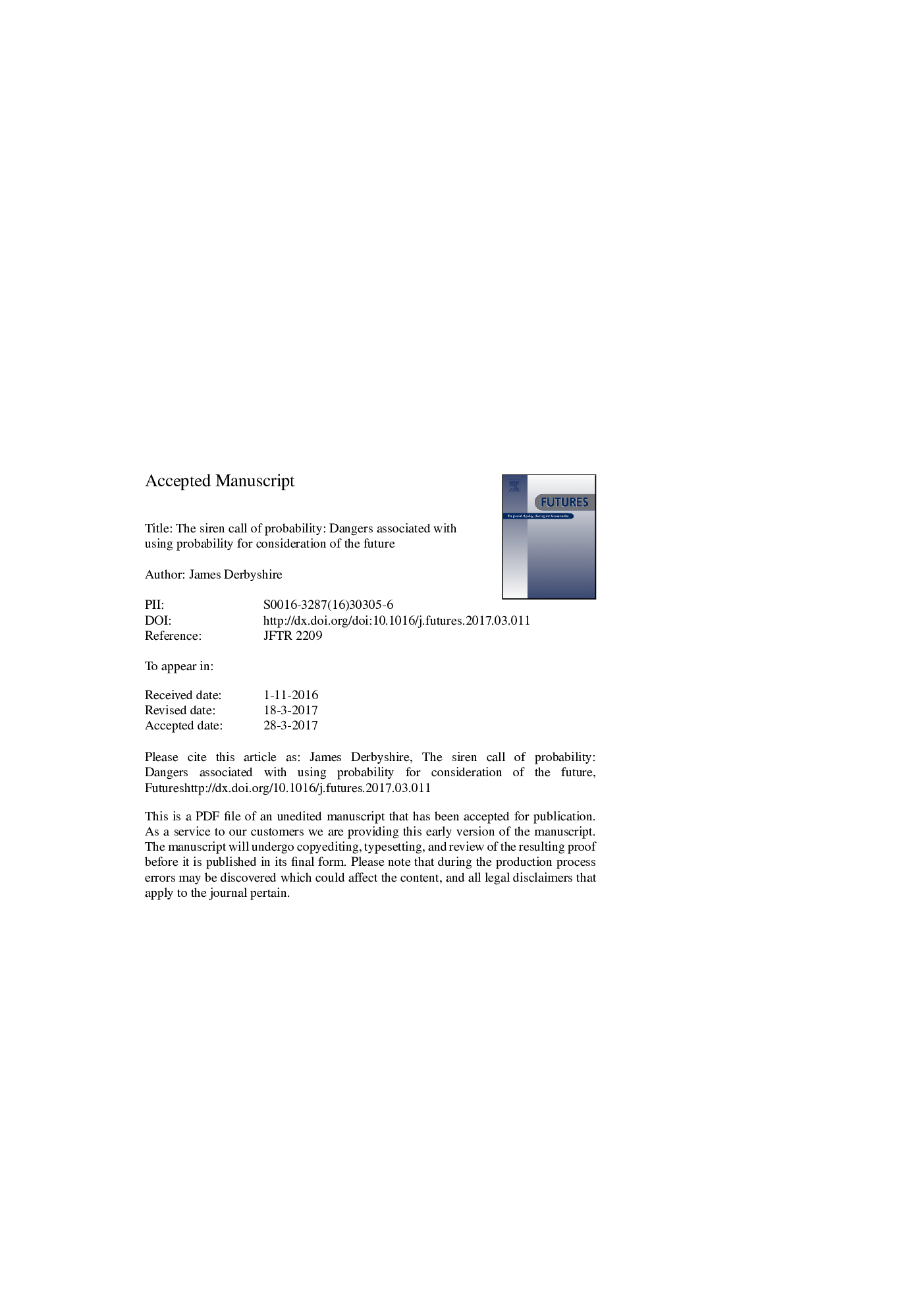| Article ID | Journal | Published Year | Pages | File Type |
|---|---|---|---|---|
| 5109200 | Futures | 2017 | 31 Pages |
Abstract
Many tools for thinking about the future employ probability. For example, Delphi studies often ask expert participants to assign probabilities to particular future outcomes. Similarly, while some scenario planners reject probability, others insist that assigning probabilities to scenarios is required to make them meaningful. Formal modelling and forecasting methods often also employ probability in one way or another. The paper questions this widespread use of probability as a device for considering the future, firstly showing that objective probability, based on empirically-observed frequencies, has some well-known drawbacks when used for this purpose. However, what is less-widely acknowledged is that this is also true of the subjective probability used in, for example, Delphi. Subjective probability is less distinct from objective probability than proponents of its use might imply, meaning it therefore suffers from similar problems. The paper draws on the foundations of probability theory as set out by Kolmogorov, as-well-as the work of Keynes, Shackle, Aumann, Tversky and Kahneman, and others, to reassert the essential distinction between risk and uncertainty, and to warn about the dangers of inappropriate use of probability for considering the future. The paper sets out some criteria for appropriate use.
Related Topics
Social Sciences and Humanities
Business, Management and Accounting
Business and International Management
Authors
James Derbyshire,
